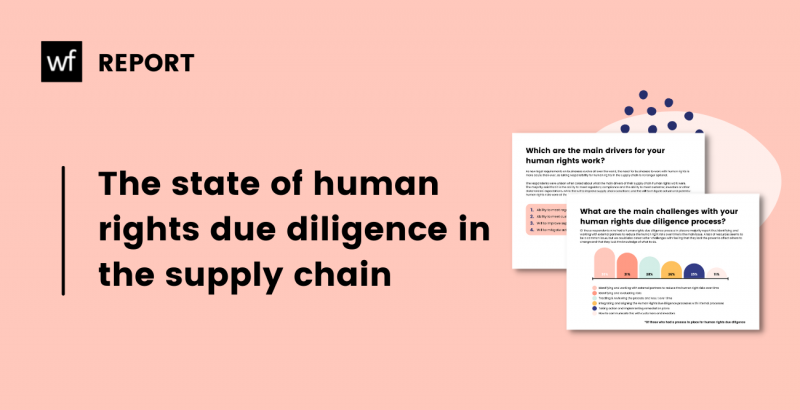hrdd in your supply chain
All you need to know about Human rights due diligence
Human rights due diligence (HRDD) in own operations and supply chains is a topic becoming more and more important. We have gathered all our resources on human rights due diligence, such as guides, webinar and blog posts - so you can deepen your knowledge.

getting started with hrdd
What is human rights due diligence?
Human rights due diligence (HRDD) is a risk management process for businesses. You as a business can implement HRDD to identify and respond to actual and potential negative impacts within your own operations and supply chain.

Why is HRDD important
To be able to prevent reputational and relationship risks, while complying with regulations and standards. By implementing human rights due diligence, you can also become a leader and drive change.

National HRRD regulations
In Europe there's a number of national regulation to know and comply with. Norway's Transparency Act Åpenhetsloven and The Netherlands' national HRDD law. Germany's supply chain due diligence law and France’s Corporate Duty of Vigilance law.

How to comply
Develop a process that assesses and identifies the most severe and potential risks in your own operations and supply chain. Collect, analyze, and break down your organization's performance, which can be done easily in Worldfavor.
FAQ
This is where you’ll find the answers to the most frequently asked questions about how to get started working with human rights due diligence and how Worldfavor can help you do it easily.
Why do businesses need to work with human rights?
How to implement the OECD due diligence procedure?
How can Worldfavor help you work with HRDD?
Why choose Worldfavor when working with HRDD?
How can Worldfavor assist in risk assessment?
Does it cost for suppliers to report information?
Start your own HRDD journey
Get a customized tour of our Sustainable Sourcing solution with one of our experts.
Discover more knowledge banks
SFDR
SUSTAINABILITY REPORTING
What is SFDR?
The Sustainable Finance Disclosure Regulation (SFDR) is the first regulation set by the EU with the purpose of reorienting capital flow towards sustainable finance. By inserting SFDR to provide transparency on sustainability within the financial market, greenwashing can be prevented.
Find the whole knowledge bank about all you need to know about the SFDR

What is sustainability reporting?
Sustainability Reporting is a way to disclose sustainability data which businesses conduct to improve their transparency and visibility, with the purpose to develop a framework for action and legal requirements. A Sustainability Report consists of the environmental, social and economic (ESG) impacts caused by a company's activities.
Find the whole knowledge bank about all you need to know about sustainability reporting

























